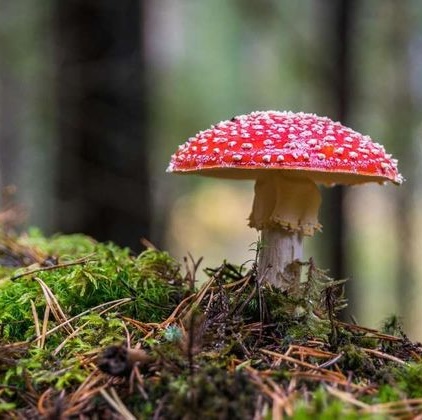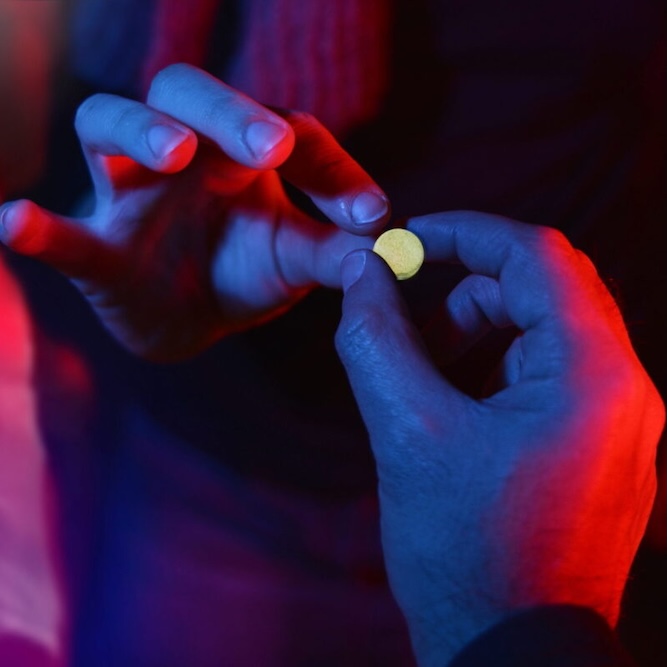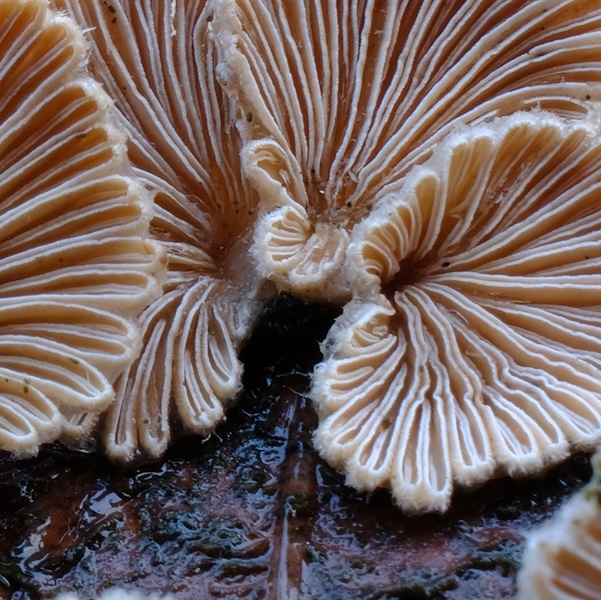In India, the legal status of magic mushrooms – fungi containing the psychedelic compounds psilocybin and psilocin – has become a topic of intense discussion. Recent court rulings have highlighted ambiguities in how India’s drug laws apply to naturally occurring psychedelics. A landmark Kerala High Court decision in early 2025, for example, questioned whether magic mushrooms should be treated as illegal narcotics under current statutes (NDPS Act| ‘Magic Mushroom’ Not A Scheduled Narcotic/Psychotropic Substance, Can’t Be Treated As A Mixture But Only A Fungi: Kerala HC) (Magic mushrooms not narcotic substances: Kerala high court | Kochi News – The Times of India).
This report explores the legal status of magic mushrooms under the Narcotic Drugs and Psychotropic Substances (NDPS) Act, examines recent court cases and expert opinions, and considers the implications for drug policy reform in India. Comparisons with international trends on psychedelic substances provide a broader context for understanding possible future changes.
Legal status of magic mushrooms under the NDPS act

India’s NDPS Act, 1985 is a comprehensive law that prohibits the manufacture, possession, and sale of various narcotic drugs and psychotropic substances. Notably, psilocybin and psilocin – the active hallucinogenic ingredients in magic mushrooms – are considered psychotropic substances under international conventions (UN Schedule I) and are generally treated as illegal in India. However, “mushrooms” themselves are not explicitly listed in the NDPS Act’s schedule of banned substances (NDPS Act| ‘Magic Mushroom’ Not A Scheduled Narcotic/Psychotropic Substance, Can’t Be Treated As A Mixture But Only A Fungi: Kerala HC). This legal gap has created confusion: while the compounds are banned, the fungus containing them is not named in the law.
Under NDPS rules, the severity of penalties depends on the quantity of the drug seized. The law defines threshold quantities for each substance to distinguish between “small” and “commercial” quantities. For psilocybin, a small quantity is defined as 2 grams and a commercial quantity as 50 grams (Magic mushrooms not narcotic substances: Kerala high court | Kochi News – The Times of India). Possession of a small amount (for personal use) is treated leniently, whereas a commercial amount triggers harsh punishment and bail restrictions. The challenge with magic mushrooms is determining how these thresholds apply: Does one measure the pure psilocybin content, or the gross weight of the mushrooms?
Until recently, law enforcement tended to count the entire mushroom weight, given that psilocybin is embedded throughout the fungi. This approach effectively made psilocybin mushrooms “illegal” by consequence, even though the law did not list them by name. The ambiguity set the stage for legal battles over what exactly constitutes an illegal drug in the context of natural psychedelics.
Recent court rulings on psychedelic fungi
High courts in India have begun addressing this grey area, with some significant rulings in the past decade that culminate in the latest Kerala High Court decision:
- Kerala high court (2025 – Rahul Rai Case): In January 2025, the Kerala High Court granted bail to a man caught with 276 grams of magic mushrooms, alongside small quantities of cannabis and hashish (Magic mushrooms not narcotic substances: Kerala high court | Kochi News – The Times of India) (Magic mushrooms not narcotic substances: Kerala high court | Kochi News – The Times of India). The court noted that mushrooms and “magic mushrooms” are neither scheduled narcotic nor psychotropic substances under the NDPS Act, but merely fungi (Magic mushrooms not narcotic substances: Kerala high court | Kochi News – The Times of India). Justice P.V. Kunhikrishnan held that a mushroom cannot be treated as a “mixture” of narcotics (unlike, say, a prepared drug concoction), and thus the entire weight of the fungus should not automatically count as banned substance (NDPS Act| ‘Magic Mushroom’ Not A Scheduled Narcotic/Psychotropic Substance, Can’t Be Treated As A Mixture But Only A Fungi: Kerala HC). Citing lack of evidence on the exact psilocybin content, the court concluded there was no proof that the accused possessed a commercial quantity of the drug (Magic mushrooms not narcotic substances: Kerala high court | Kochi News – The Times of India). Therefore, the stringent bail restrictions for commercial drug offenses did not apply, and bail was granted (Magic mushrooms not narcotic substances: Kerala high court | Kochi News – The Times of India). This ruling explicitly reiterated that magic mushrooms are not a scheduled narcotic/psychotropic drug under Indian law (NDPS Act| ‘Magic Mushroom’ Not A Scheduled Narcotic/Psychotropic Substance, Can’t Be Treated As A Mixture But Only A Fungi: Kerala HC), setting an important precedent.
- Karnataka high court (2013 – Saeidi Mozdheh Ehsan Case): An early precedent was set in 2013 when the Karnataka High Court considered the case of a foreign national caught with 65 grams of alleged magic mushrooms (‘Magic mushrooms are a natural fungus…’: Court rulings may change India’s drug laws). The court opined that in the absence of specific data on the narcotic content (psilocybin) in the mushrooms, the seized fungi could not be treated as a commercial quantity of an illegal drug (‘Magic mushrooms are a natural fungus…’: Court rulings may change India’s drug laws). Essentially, the prosecution had not measured how much psilocybin was present, so the court was unwilling to assume the entire 65g was illicit material. Bail was accordingly granted in that case (‘Magic mushrooms are a natural fungus…’: Court rulings may change India’s drug laws). This judgment introduced the idea that only the actual psychotropic substance within a natural product should count toward quantity, not the gross weight of the material.
- Madras high court (2024 – S. Mohan Case): In a similar vein, the Madras High Court in 2024 granted bail to an accused in a magic mushroom case (‘Magic mushrooms are a natural fungus…’: Court rulings may change India’s drug laws). The court found that the mushrooms seized did not meet the legal requirements to be considered a narcotic substance under NDPS (‘Magic mushrooms are a natural fungus…’: Court rulings may change India’s drug laws). Although details of this case are sparse, it appears the court followed the logic of the Karnataka decision: since magic mushrooms are not individually scheduled and their psilocybin content was unquantified, the seizure could not be automatically treated as involving a punishable quantity of psychotropic substance.
These cases collectively signaled a judicial recognition that natural psychedelics occupy a legal grey zone – and that prosecuting someone for mushrooms is not as straightforward as for other drugs. However, not all courts have been in agreement:
- Madras high court (2023 – Dhanaraj Case, Justice Bharatha Chakravarthy): In contrast to the above rulings, another bench of the Madras High Court took a stricter view. Justice G. Chandrasekharan (as reported in summaries of the case involving an accused named Dhanaraj) differed from the Karnataka approach (Madras High Court Clarifies Magic Mushroom Seizure Quantity for NDPS Act Bail, Differentiates from Karnataka HC’s Interpretation – The Legal Affair). Here, the judge reasoned that because psilocybin permeates every cell of the mushroom, the entire fungus is effectively a carrier of the psychotropic substance. An expert witness in that case testified that it is not feasible to separate psilocybin from the fungus and that consuming the mushroom produces hallucinogenic effects, qualifying it as a psychotropic substance in natural form (Madras High Court Clarifies Magic Mushroom Seizure Quantity for NDPS Act Bail, Differentiates from Karnataka HC’s Interpretation – The Legal Affair). On this basis, the court held that the whole weight of the mushrooms should be counted when determining if the quantity is “commercial” (Madras High Court Clarifies Magic Mushroom Seizure Quantity for NDPS Act Bail, Differentiates from Karnataka HC’s Interpretation – The Legal Affair). The seized amount was large enough to cross the 50g commercial threshold (when counted in total), so the defendant’s bail plea was dismissed (Madras High Court Clarifies Magic Mushroom Seizure Quantity for NDPS Act Bail, Differentiates from Karnataka HC’s Interpretation – The Legal Affair) (Madras High Court Clarifies Magic Mushroom Seizure Quantity for NDPS Act Bail, Differentiates from Karnataka HC’s Interpretation – The Legal Affair). This divergent view emphasized strict adherence to the letter of NDPS (especially after a 2014 amendment clarified that mixtures should be weighed in total) and underscored that penal statutes must be interpreted strictly in favor of enforcement.
The contradiction between the Kerala/Karnataka approach and the stricter Madras interpretation highlights an ongoing legal debate in India: Should courts treat unprocessed psychedelic plants/fungi as illegal per se, or require proof of their illicit chemical content? The recent Kerala High Court ruling sides with the latter view, potentially paving the way for more consistent leniency (or at least scientific rigor) in such cases. As one commentary noted, the decision “has significant legal implications… setting a precedent that substances not categorized under the NDPS Act cannot automatically be treated as illegal or subject to the same legal restrictions.” (‘Magic mushrooms are a natural fungus…’: Court rulings may change India’s drug laws). This judicial trend could pressure lawmakers to clarify the NDPS Act’s stance on naturally occurring psychedelics.
Expert opinions from legal scholars and officials
The courtroom developments have prompted reactions from legal experts and calls for clearer laws:
- Legal experts & defense lawyers: Advocates defending those accused in mushroom cases have highlighted the ambiguity in the NDPS Act. In the Kerala case, defense counsel Advocate Veena Hari argued several key points that swayed the court (‘Magic mushrooms are a natural fungus…’: Court rulings may change India’s drug laws) (‘Magic mushrooms are a natural fungus…’: Court rulings may change India’s drug laws). First, she noted that “Magic Mushroom is not a scheduled narcotic drug or psychotropic substance under the NDPS Act,” a fundamental point that undercuts the basis for treating it as illegal (‘Magic mushrooms are a natural fungus…’: Court rulings may change India’s drug laws). She also stressed that the chemical analysis report of the seized mushrooms did not specify the percentage of psilocybin present, meaning there was no evidence that a commercial quantity of the psychotropic compound was involved (‘Magic mushrooms are a natural fungus…’: Court rulings may change India’s drug laws). “The net weight of the magic mushroom cannot be taken for arriving at a conclusion that commercial quantity was involved,” she contended, citing scientific literature that the average psilocybin content in Psilocybe cubensis (a common magic mushroom species) is about 1% by weight (‘Magic mushrooms are a natural fungus…’: Court rulings may change India’s drug laws). These arguments reflect a broader legal opinion: many scholars believe that drug laws must distinguish raw natural materials from refined illegal substances, or at least require the prosecution to prove how much banned substance a natural material contains.Some legal commentators have suggested that the NDPS Act needs an update to address this gap. Clarity in legislation would help avoid inconsistent interpretations – whether that means explicitly listing psychedelic fungi as controlled substances or providing guidelines for handling cases involving naturally occurring psychotropics. Until such clarity is provided, courts will be left to interpret the law case-by-case, which can lead to uncertainty for both law enforcement and citizens.
- Government and law enforcement officials: The Indian government’s official stance on psychedelics remains conservative. The Narcotics Control Bureau (NCB) and other agencies treat any source of a banned drug as contraband. In practice, if someone is found with mushrooms that are known to contain psilocybin, authorities are likely to arrest and charge them under NDPS provisions, leaving it to the courts to decide the nuances. As of now, there is no public indication that the government intends to amend the NDPS Act in light of these court rulings – meaning the legal status quo (psilocybin is illegal; magic mushrooms exist in a grey area) persists. Analysts note that India has not begun the kind of policy shift seen elsewhere. “Unfortunately, we do not see the same trend in India, at least in the short term,” one legal analysis observed, referring to the lack of movement towards reform or decriminalization of psychedelics by Indian authorities (A Look At India’s Current Psychedelic Drug Laws – Tripsitter). Government officials, focusing on the mandate of the NDPS Act to curb drug misuse, are cautious about any relaxation. The priority for law enforcement is to prevent drug trafficking and abuse, and psychedelics are still viewed through this prohibitory lens. However, the recent legal developments may eventually prompt the Ministry of Home Affairs (which oversees NDPS enforcement) to issue guidelines or clarifications. For example, authorities could circulate protocols on how to handle seizures of magic mushrooms – whether to test for psilocybin content or to charge possession as a lesser offense if content is minimal. So far, no such guidance has been made public, and the onus has fallen on courts to navigate the ambiguity.
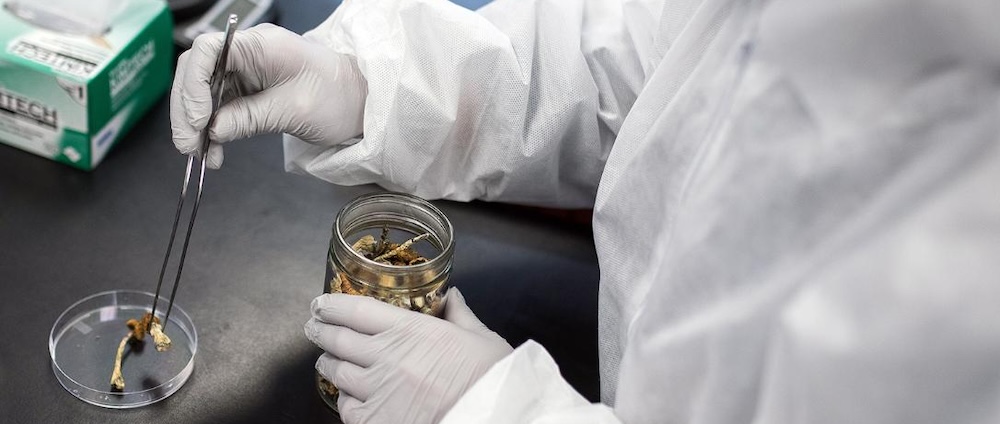
Medical and research perspectives on psychedelics
While courts and lawmakers grapple with legal definitions, the medical and scientific community offers a different viewpoint – one that weighs potential benefits against risks:
- Therapeutic potential: There is a growing body of research worldwide suggesting that psychedelics like psilocybin could revolutionize mental health treatment. “Studies have shown promising results in treating conditions such as treatment-resistant depression, cancer-related anxiety and depression, OCD, and even cluster headaches,” Advocate Veena noted in the Kerala case, drawing from global research (‘Magic mushrooms are a natural fungus…’: Court rulings may change India’s drug laws). Recent clinical trials in prestigious journals support these claims. For instance, a 2022 study published in The New England Journal of Medicine found that a single dose of psilocybin significantly reduced depression scores in patients with hard-to-treat depression (SHOULD PSYCHEDELIC THERAPY BE INTRODUCED IN INDIA? – Jus Corpus). Similarly, a 2021 study in JAMA Psychiatry reported rapid and sustained antidepressant effects from psilocybin-assisted therapy in patients with major depressive disorder (SHOULD PSYCHEDELIC THERAPY BE INTRODUCED IN INDIA? – Jus Corpus). Such findings have led many medical experts to view psilocybin not as a menace, but as a promising pharmaceutical – albeit one that must be administered with care. Indian medical researchers and psychiatrists are paying attention to these developments. There is a nascent interest in conducting psychedelic therapy research in India, though regulatory hurdles under NDPS make it challenging. Advocates argue that if the law were to allow controlled studies or clinical use, India’s large population of patients with depression, PTSD, and addictions could potentially benefit from new treatment options.
Safety and risks: Experts emphasize that potential benefits must be balanced with caution. Psilocybin is generally considered physiologically safe (non-toxic and non-addictive) and, in controlled settings, has a favorable safety profile compared to many other substances (‘Magic mushrooms are a natural fungus…’: Court rulings may change India’s drug laws). Unlike alcohol or opioids, the risk of lethal overdose on psilocybin is extremely low. However, the psychological effects are profound. “It creates hallucinations, which are psychotic symptoms that can push the user into a psychotic episode,” warns Dr. Vishnu, a psychiatrist who commented on the Kerala ruling (‘Magic mushrooms are a natural fungus…’: Court rulings may change India’s drug laws). He and others in the mental health field note that unsupervised use of psychedelics can trigger severe anxiety, panic, or even long-lasting psychosis in people predisposed to mental illnesses (‘Magic mushrooms are a natural fungus…’: Court rulings may change India’s drug laws). Cases of hallucinogen persisting perception disorder (HPPD) or trauma from “bad trips” are documented, though rare. As Dr. Vishnu pointed out, psilocybin remains a Schedule I substance under the UN Convention, meaning it’s officially deemed to have no medical use and a high potential for abuse (‘Magic mushrooms are a natural fungus…’: Court rulings may change India’s drug laws). This classification (which India adheres to) signals the need for extensive research before any mainstream medical adoption. Medical experts in India thus urge a measured approach: support scientific research and possible medical use in the future, but maintain safeguards.
They suggest that if India were to allow psychedelics in clinical practice, it should be restricted to licensed professionals in therapeutic settings, with rigorous screening and follow-up – similar to how some Western countries are proceeding. Until then, the consensus in the medical community is that more Indian research is needed. Psychiatrists remain cautious about enthusiastic calls to legalize without sufficient evidence and infrastructure to handle the consequences (‘Magic mushrooms are a natural fungus…’: Court rulings may change India’s drug laws). This perspective underscores that any relaxation of laws must go hand-in-hand with public health planning, clinician training, and education about the responsible use of these powerful substances.
implications of court rulings on drug policy reform
The recent court rulings, especially the Kerala High Court’s decision, could be a catalyst for broader drug policy discussions in India. Several implications and potential developments emerge:
- Legal re-evaluation of natural substances: The judiciary’s stance that magic mushrooms are “merely fungi” and not automatically illicit challenges the traditional enforcement approach (Magic mushrooms not narcotic substances: Kerala high court | Kochi News – The Times of India) (NDPS Act| ‘Magic Mushroom’ Not A Scheduled Narcotic/Psychotropic Substance, Can’t Be Treated As A Mixture But Only A Fungi: Kerala HC). If this reasoning holds, it may compel lawmakers to revisit the NDPS Act’s scheduling. The legislature has a few options:
- Amend the NDPS act or rules: The government could choose to explicitly include psilocybin-containing mushrooms (and other natural psychedelics) in the list of controlled substances, closing the loophole. This would straightforwardly make possession of such fungi illegal, regardless of content, and simplify enforcement. However, such a move might be seen as a step backwards by those who favor reform, and it could stifle emerging research.
- Regulatory carve-out for medical use: Alternatively, reflecting the arguments made in court, India could introduce provisions to allow medical and scientific use of psychedelics. For instance, Advocate Veena suggested that psilocybin mushrooms could be regulated under the Drugs and Cosmetics Act for therapeutic applications (‘Magic mushrooms are a natural fungus…’: Court rulings may change India’s drug laws). If substantial evidence accumulates for medical benefits, the government might consider reclassifying psilocybin (for example, moving it to a schedule that permits medicinal use with a license, rather than absolute prohibition). This would align with how certain opioids or cannabis derivatives are handled – illegal for recreational use but permitted in medicine.
- Status quo with guidelines: The government may also choose not to amend the law but issue clarification. For example, guidelines could instruct law enforcement to prosecute based on measurable psilocybin content rather than gross weight. This middle-ground approach would respect the court’s logic without immediately changing the NDPS Act. It could also involve training narcotics officers in identifying and testing psychedelic substances, an area currently lacking resources in India (A Look At India’s Current Psychedelic Drug Laws – Tripsitter).
- Impact on broader drug policy: The conversation around magic mushrooms is happening alongside a global rethinking of the so-called “war on drugs.” In India, any shift in policy on psychedelics might influence how other substances are treated:
- Distinguishing psychedelics from hard drugs: India’s drug laws have been criticized for an overly punitive approach that doesn’t differentiate between substance types. If courts and policymakers start acknowledging the relatively lower harm profile and higher medical potential of psychedelics (versus, say, opioids or methamphetamine), it could lead to a more nuanced drug classification system. For example, natural psychedelics might be seen more like cannabis – still controlled, but with room for medicinal use and lighter penalties – rather than like heroin. Already, the Kerala High Court’s observation that thresholds for “small” and “commercial” quantities in NDPS do not neatly apply to mushrooms points to the need for tailored rules (NDPS Act| ‘Magic Mushroom’ Not A Scheduled Narcotic/Psychotropic Substance, Can’t Be Treated As A Mixture But Only A Fungi: Kerala HC) (Magic mushrooms not narcotic substances: Kerala high court | Kochi News – The Times of India).
- Encouraging research and innovation: Clearer laws or exceptions for medical research could unlock academic studies in India. Institutions and biotech startups may become interested in psychedelic research if regulatory hurdles are lowered. This could eventually pave the way for FDA-equivalent approvals of psychedelic-assisted therapies in India, ensuring that Indian patients aren’t left behind global advances in psychiatric care.
- Public health and safety measures: Any liberalization would also necessitate strong public health strategies. Education about the risks of unsupervised use, training healthcare professionals in psychedelic crisis management, and integrating traditional knowledge (India has indigenous psychoactive plants used in spiritual contexts) responsibly into modern frameworks would all be important. On the other hand, if the government opts to tighten the law, it may double down on anti-drug campaigns and enforcement for psychedelics, which could drive the use further underground.
- Societal impact: How Indian society responds to potential changes in psychedelic policy will be telling. There is likely to be resistance from conservative segments worried about drug abuse, as well as support from mental health advocates and younger populations interested in personal freedom or spiritual exploration. Decriminalizing or legalizing magic mushrooms, even in a limited way, would be a significant cultural shift in a country where drug use is highly stigmatized. Advocates argue that moving away from treating users as criminals could reduce stigma and encourage those with substance issues to seek help. Critics, however, fear that any softening of laws might be misinterpreted by the public as “mushrooms are safe,” potentially leading to increased recreational use and associated harms. The balance between enabling scientific progress and ensuring public safety will be a central concern in policy debates.
In summary, the courts have lit a spark that could either prompt reform or retrenchment. The Kerala High Court’s ruling is already being hailed as a potential turning point, a case that “may serve as a catalyst for a broader conversation about drug laws, medical research, and the potential for reform in India.” (‘Magic mushrooms are a natural fungus…’: Court rulings may change India’s drug laws) How that conversation translates into action – legislative change, new research, or stricter enforcement – will unfold in the coming years.
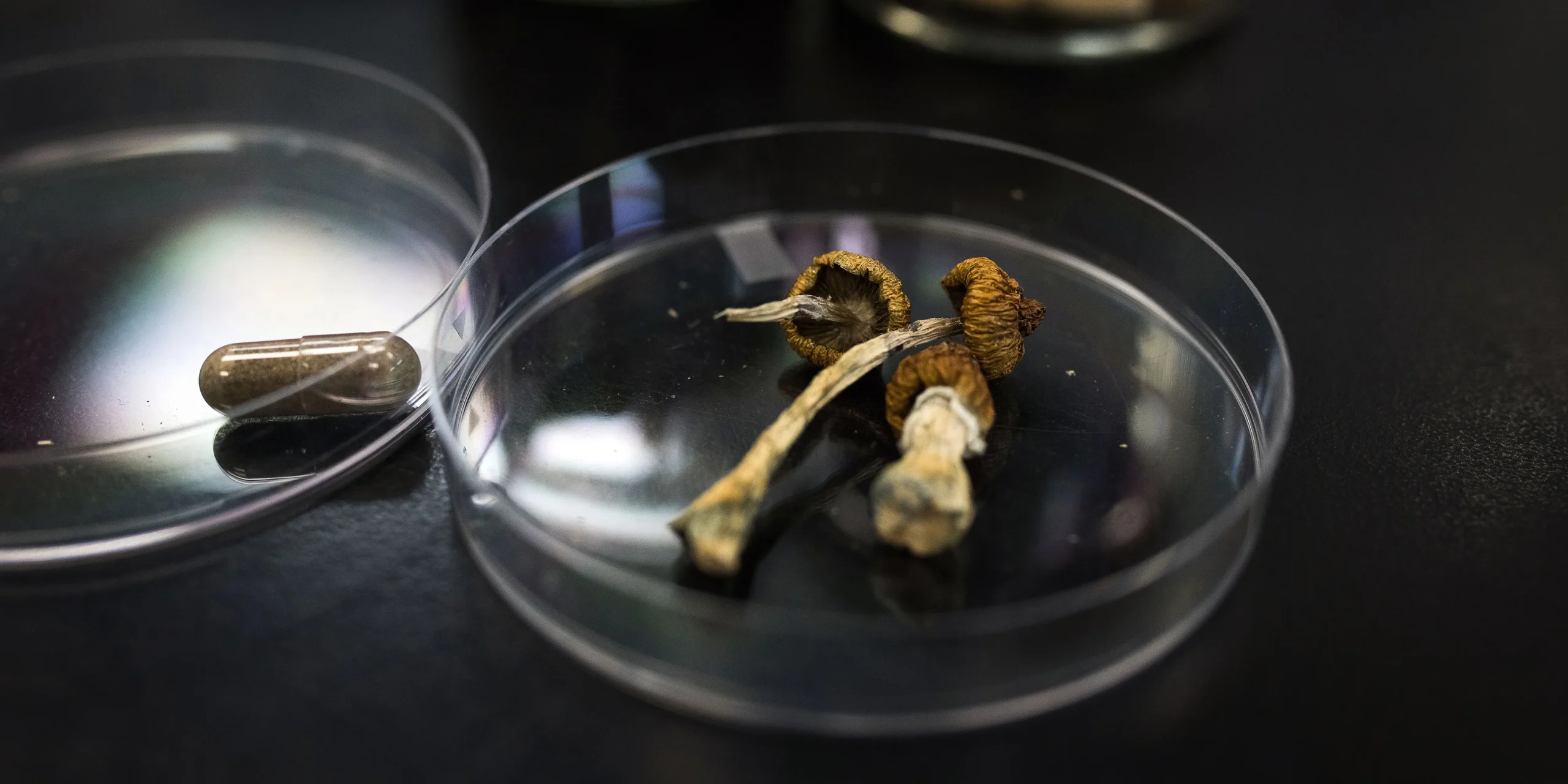
International comparisons: How other countries handle psychedelics
India’s deliberations on magic mushrooms are part of a larger global story. Around the world, attitudes and laws regarding psychedelic substances are evolving, often in recognition of their therapeutic potential:
- United States & Europe: In recent years, numerous jurisdictions have relaxed laws on psilocybin and other psychedelics. For example, several cities and states in the USA (such as Denver, Oakland, Washington D.C., and the entire state of Oregon and Colorado) have decriminalized personal possession of psilocybin mushrooms or created licensed psilocybin therapy programs. In 2020, Oregon voters passed Measure 109, establishing the first state-regulated psilocybin therapy system in the U.S. (Oregon Psilocybin Services – Development Period (2021-2022)) (2020 Oregon Ballot Measure 109 – Wikipedia). Colorado followed in 2022 by legalizing regulated access to psilocybin and some other entheogens. These moves mean that under state law, adults can legally undergo guided psilocybin sessions in those states (though federal U.S. law still considers psilocybin illegal). Europe has been more cautious but is not far behind – countries like the Netherlands allow the sale of psilocybin-containing truffles (a form of mushroom) in smartshops, and Portugal’s decriminalization of all drugs effectively includes psychedelics. Some European countries are funding clinical trials, and there’s active discussion within the EU about reclassifying psilocybin for medical use. Overall, Western nations are promoting strong measures to legalize or decriminalize substances such as psilocybin, MDMA, and LSD, with multiple U.S. states and a few countries easing restrictions (A Look At India’s Current Psychedelic Drug Laws – Tripsitter).
- Australia and Canada: Australia recently made headlines as the first country to legalize the medical use of psychedelics at a national level. In 2023, Australia’s Therapeutic Goods Administration (TGA) reclassified psilocybin and MDMA from prohibited substances to controlled medicines when used in therapy for treatment-resistant depression and PTSD, respectively (Australia Legalizes Psychedelics for Use in Depression, PTSD Therapy | Psychiatric News). As of July 2023, authorized psychiatrists in Australia can prescribe psilocybin for certain patients in clinical settings (Australia Legalizes Psychedelics for Use in Depression, PTSD Therapy | Psychiatric News). This pioneering move is being closely watched by other countries. Canada, on the other hand, has not broadly legalized psychedelics, but its federal health department has granted special exemptions for the therapeutic use of psilocybin to certain patients and is supporting research. Canadian clinics can apply for permission to treat end-of-life anxiety or depression with psilocybin on a case-by-case basis, and a number of Canadian companies are conducting psychedelic drug development.
- Other regions: In South and Central America, indigenous use of natural psychedelics like ayahuasca and mescaline-containing cacti has always existed in legal gray areas or under cultural protection. Countries such as Brazil and Peru allow ayahuasca (DMT brew) in religious ceremonies, and Uruguay’s broad decriminalization covers personal possession of all drugs. Jamaica and the Bahamas never criminalized psilocybin mushrooms, leading to a boom in psychedelic wellness retreats in those islands. Overall, there is a noticeable global trend: from outright prohibition towards decriminalization, medicalization, or regulated adult use of psychedelics, albeit in a cautious and stepwise fashion.
In comparison, India has so far maintained a strict prohibitionist stance. Psychedelics are lumped into the same category as other illicit drugs, and until these recent court cases, there was little public debate on the issue. Unlike in the West, there haven’t been high-profile clinical trials or government-sanctioned research on psychedelics in India yet. The global shifts, however, put some pressure on India. As one analysis pointed out, India does not currently mirror these international trends, but the growing evidence and policy changes abroad may eventually force a rethink (A Look At India’s Current Psychedelic Drug Laws – Tripsitter). Indeed, the Kerala High Court’s differentiation between a natural fungus and a narcotic drug resonates with the logic used by reformers worldwide, who argue that blanket bans on such substances are outdated in light of new science (‘Magic mushrooms are a natural fungus…’: Court rulings may change India’s drug laws).
India’s response will likely be measured against these global developments. If India chooses to explore medical use of psychedelics, it can learn from the regulatory frameworks being piloted in Australia, the US, and elsewhere. Conversely, if India decides to double down on prohibition, it may find itself increasingly at odds with countries that are reaping the benefits of psychedelic research and therapy. International collaboration on drug policy (through bodies like the UN) could also influence India – for instance, if the UN were to loosen restrictions on psilocybin due to global medical consensus, India would be expected to follow suit.
Future outlook and conclusion
The legal discourse around magic mushrooms in India is still unfolding, but it has already prompted a rare intersection of law, science, and social debate. The NDPS Act, drafted in an era when psychedelics were primarily seen as substances of abuse, is being tested against contemporary understanding of these fungi. Courts have begun to assert that the law, as written, does not straightforwardly ban every natural source of a psychotropic substance (NDPS Act| ‘Magic Mushroom’ Not A Scheduled Narcotic/Psychotropic Substance, Can’t Be Treated As A Mixture But Only A Fungi: Kerala HC). This has provided temporary relief to some defendants and ignited conversations about whether the law should change.
Looking ahead, several scenarios could emerge:
- Status quo with stricter enforcement: Authorities might continue to prosecute magic mushroom cases, but armed with the Kerala High Court ruling, defendants across India could increasingly secure relief by citing the precedent. If no immediate changes are made to the law, we may see a patchwork of outcomes – some courts dismissing cases for lack of measured psilocybin content, others taking a hard line. This uncertainty could eventually prompt the Supreme Court of India to weigh in to resolve the conflicting interpretations. In the meantime, users remain at risk of arrest, and the illegality (even if unenforced in some instances) keeps research collaborations in a legal limbo.
- Legislative change to NDPS: The Indian Parliament could amend the NDPS Act or its schedules in response to these legal findings. A possible amendment might explicitly list “all forms of mushrooms containing psilocin/psilocybin” as psychotropic substances, thus removing any doubt that they are illegal. Such a move would simplify law enforcement but could be seen as ignoring scientific evidence. Alternatively, a progressive amendment could create exceptions for activities like licensed research, medical use in clinical trials, or traditional religious use (though the latter is less applicable in India where magic mushrooms are not widely used in indigenous traditions). Any amendment would come after consultations and likely a robust debate, given the sensitive nature of drug laws.
- Regulatory innovation for medical use: Without overhauling NDPS, India could use existing mechanisms to allow medical use on a limited basis. For example, the Indian Council of Medical Research (ICMR) or Central Drugs Standard Control Organization (CDSCO) could facilitate clinical trials on psilocybin for depression with appropriate approvals, even while NDPS remains unchanged (similar to how morphine, though controlled, is used in hospitals). If such trials show positive outcomes, it could build an indigenous evidence base to convince regulators and the public of the value of psychedelics in healthcare. Over time, this could lead to creating a special licensing system for psychedelic-assisted therapy under medical supervision. The impact on healthcare would be significant – introducing a novel class of treatment for serious psychiatric conditions in India’s overburdened mental health sector.
- Influence of public opinion and advocacy: As information spreads (through media coverage of cases like Rahul Rai’s, and through global discourse), public opinion in India might shift. Civil society organizations and advocacy groups could campaign either for the right to use natural psychedelics (highlighting personal freedom and therapeutic potential) or against any relaxation (citing the need to protect youth and society from drug misuse). How the public perceives psychedelics – as medicines, sacraments, or dangerous drugs – will influence politicians. If a balanced narrative takes hold, acknowledging both promising benefits and potential harms, it could pave the way for a middle-ground policy that allows science to advance while keeping recreational use in check.
In conclusion, India stands at a crossroads regarding magic mushrooms and similar natural psychedelics. The recent court rulings have brought to light the tension between an outdated legal framework and emerging scientific knowledge. Experts from the legal field are pushing for clarity and rationality in law enforcement, while medical experts urge caution but also curiosity in exploring potential benefits. Any future legal changes – whether tightening or loosening of regulations – will have a profound impact on Indian society and healthcare. They could influence everything from the fate of individuals facing criminal charges, to the development of new psychiatric treatments, to the way society understands psychoactive substances in general.
India’s approach will likely evolve gradually. It may begin with small steps, such as permitting research or granting bail in mushroom cases, rather than sweeping legalization. Yet, even these small steps mark significant progress in a country where drug policy has been static for decades. As one analysis noted, the global trend toward decriminalization and medical use of psychedelics continues to grow, and India may soon find itself reconsidering its approach to substances like psilocybin (‘Magic mushrooms are a natural fungus…’: Court rulings may change India’s drug laws). In balancing public safety with scientific innovation, India has the opportunity to craft a drug policy that is both evidence-based and compassionate – one that protects society while allowing the transformative potential of psychedelics to be responsibly realized in the realms of medicine and mental health.
Sources:
- LiveLaw News, Kerala HC: Magic Mushroom Not a Scheduled Narcotic/Psychotropic Substance (NDPS Act| ‘Magic Mushroom’ Not A Scheduled Narcotic/Psychotropic Substance, Can’t Be Treated As A Mixture But Only A Fungi: Kerala HC) (NDPS Act| ‘Magic Mushroom’ Not A Scheduled Narcotic/Psychotropic Substance, Can’t Be Treated As A Mixture But Only A Fungi: Kerala HC)
- Times of India – “Magic mushrooms not narcotic substances: Kerala high court” (Kochi Edition) (Magic mushrooms not narcotic substances: Kerala high court | Kochi News – The Times of India) (Magic mushrooms not narcotic substances: Kerala high court | Kochi News – The Times of India)
- New Indian Express, “Magic mushrooms are a natural fungus… Court rulings may change India’s drug laws” (‘Magic mushrooms are a natural fungus…’: Court rulings may change India’s drug laws) (‘Magic mushrooms are a natural fungus…’: Court rulings may change India’s drug laws) (‘Magic mushrooms are a natural fungus…’: Court rulings may change India’s drug laws) (Kerala, Feb 2025)
- The Legal Affair, Madras HC on Magic Mushroom Quantity (Dhanaraj v. State) (Madras High Court Clarifies Magic Mushroom Seizure Quantity for NDPS Act Bail, Differentiates from Karnataka HC’s Interpretation – The Legal Affair) (Madras High Court Clarifies Magic Mushroom Seizure Quantity for NDPS Act Bail, Differentiates from Karnataka HC’s Interpretation – The Legal Affair)
- JusCorpus Blog, “Should Psychedelic Therapy be Introduced in India?” (SHOULD PSYCHEDELIC THERAPY BE INTRODUCED IN INDIA? – Jus Corpus) (SHOULD PSYCHEDELIC THERAPY BE INTRODUCED IN INDIA? – Jus Corpus)
- TripSitter Guide, “India’s Psychedelic Drug Laws” (Phil Dubley, 2024) (A Look At India’s Current Psychedelic Drug Laws – Tripsitter) (A Look At India’s Current Psychedelic Drug Laws – Tripsitter)
- New Indian Express (Advocate Veena’s arguments and Dr. Vishnu’s perspective) (‘Magic mushrooms are a natural fungus…’: Court rulings may change India’s drug laws) (‘Magic mushrooms are a natural fungus…’: Court rulings may change India’s drug laws) (‘Magic mushrooms are a natural fungus…’: Court rulings may change India’s drug laws) (‘Magic mushrooms are a natural fungus…’: Court rulings may change India’s drug laws)
- Psychiatric News – “Australia Legalizes Psychedelics for Use in Depression, PTSD Therapy” (Australia Legalizes Psychedelics for Use in Depression, PTSD Therapy | Psychiatric News) (Nick Zagorski, Aug 2023)
- Oregon Psilocybin Services Act – Ballot Measure 109 (2020) (Oregon Psilocybin Services – Development Period (2021-2022)) (2020 Oregon Ballot Measure 109 – Wikipedia) (referenced via Oregon.gov/Ballotpedia)
- UN Convention on Psychotropic Substances (1971) – Schedule I (Psilocybin and Psilocin listed) (Legal status of psilocybin mushrooms – Wikipedia). (Referenced for international legal status)

